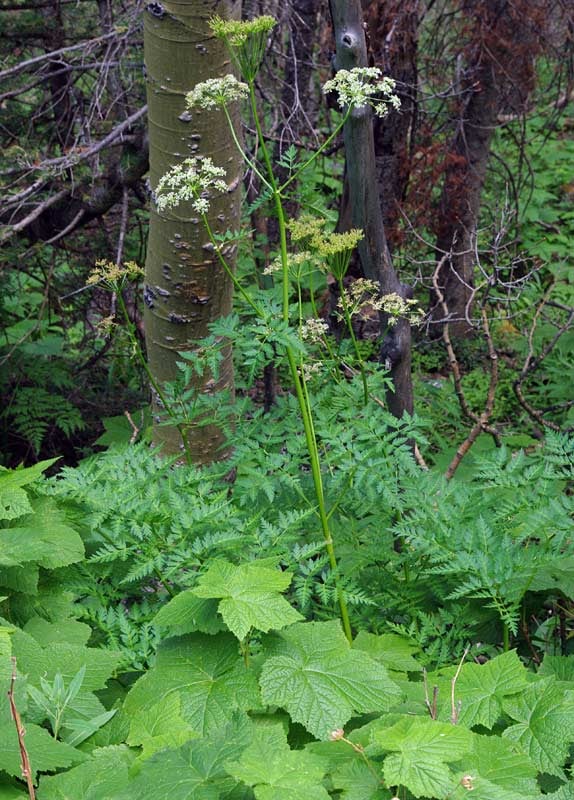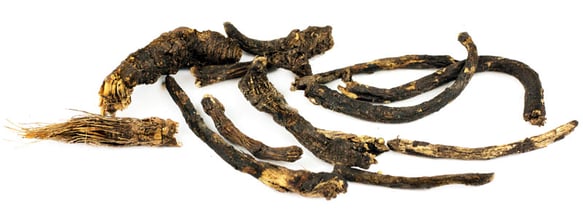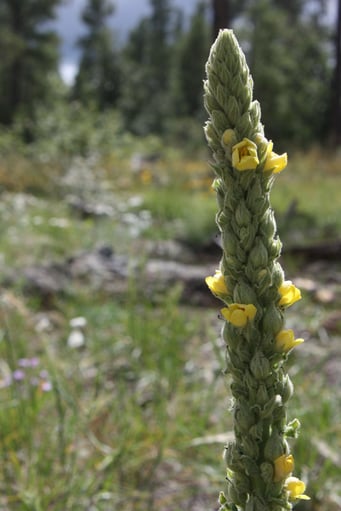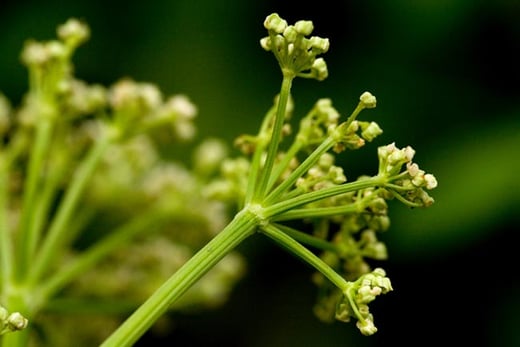It was a difficult year for the Osha (Ligusticum porteri) harvest in the Rockies. Our wildcrafters work in remote stands and use propagation techniques such as reseeding and replanting broken parts of root crowns to ensure that the area is healthier and the Osha is more abundant when they return three to five years later.
However, with the heavy rains and flooding that occurred along the Front Range this year it was difficult for our harvesters to get into the mountains. We are working with and encouraging better study and management of this incredible and powerful plant to ensure healthy future harvests, but this year will be scarce. With our focus on and support of home and small-shop herbalists, we will be limiting the amount that any one person can order this year.
I have been working with my herbal mentor Howie Brounstein of the Columbines School of Botanical Studies for recommendations of substitute plants and approaches. Thankfully, there are excellent replacements for Osha in our spice cabinet and home medicine drawers.
In our kitchen we find Thyme. Thyme, like Osha, has aromatics that help push our lungs to improve blood flow and function, as an expectorant. When the cold season comes around, I load up my soup stocks with Thyme. I will water them down a bit and sip them throughout the day. The mix of garlic, ginger, and dried mushrooms like Shiitake in the stock help to build a more invigorating tonic. Try this Shiitake Ginger Garlic Miso Soup recipe with Thyme added.
In the European tradition, we find the expectorant Horehound and Elecampane. Typically used as a tea or tincture, these are very traditional and dependable aromatic lung remedies with general immune stimulation also.
While we are pushing our lungs with aromatics we should also protect them with demulcents. Marshmallow root and mullein both soothe the irritation brought on from coughs, dry winter air, and dusty air. Many classic formulas combine aromatic plants with demulcent plants that have lung affinities. Honey really helps to combine and mellow the flavors and is a solid throat soother on its own.
A newer plant for the Western herb community is Umckaloabo. This African Pelargonium is used in European pharmacies for seasonal lung ailments. Typically a tincture or extract of the root is prepared and added to a pleasant tea with tonic and lung soothing demulcents.
Osha is an amazing North American plant. As a long-lived non-timber forest product it has proven difficult to cultivate in fields. Those of us who rely on this medicine should work to support the goal of planned and reasonable management and study to ensure our continued use of this plant. Our forests are not just for timber. Intact and healthy ecosystems support the medicinal and aromatic plants that grow below the trees. As herbalists who use these plants, we should work with forest managers to protect our ecological heritage and our continuing engagement with it.
You can learn more about our work with the Osha Sustainability Study here!














